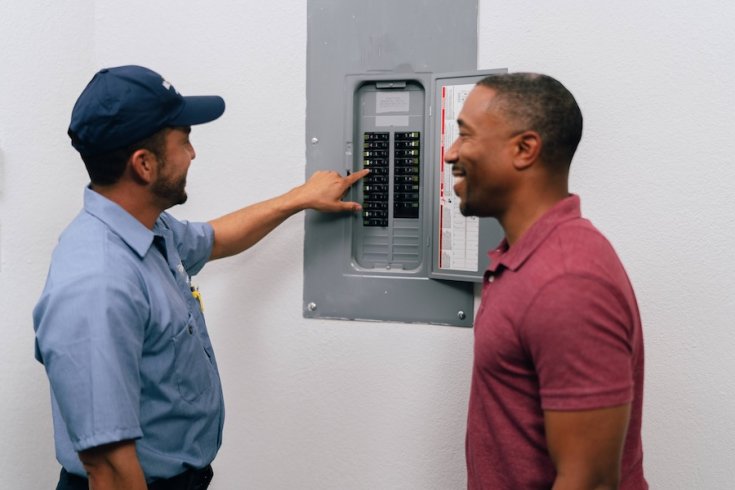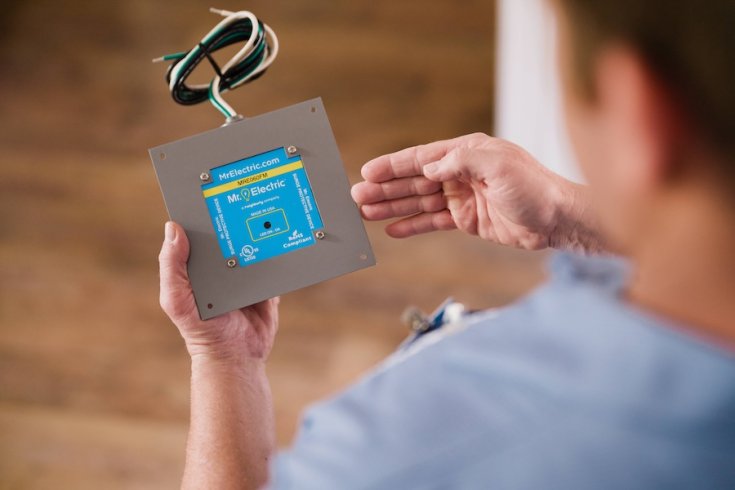The Cost of Electricity in Every State
Electricity prices vary significantly across the United States, as they are influenced by factors such as regional energy sources, infrastructure, and regulatory frameworks. The latest data from February 2024, released by the U.S. Energy Information Administration (EIA), provides insights into the average price of electricity across different sectors in each state.
In this brief article brough to you by Mr. Electric, we’ll shed light on notable trends and variations. If you are scratching your head over high electricity bills, then consider consulting with a dependable electrician. We can provide tips and solutions to maximizing energy efficiency at your home or business.
Regional Variations in Electricity Prices
The data categorizes states into various census divisions, each representing a distinct region with its own energy landscape.
For example, Pacific Noncontiguous states of Alaska and Hawaii are a region of their own and Hawaii’s average electricity prices for all sectors is a whopping $40.00 per kilowatt-hour (kWh). Together, the region’s average price for all sectors is $31.29 per kWh.
The next highest average electricity price is typically found in the Northeast. New England states like Connecticut, Maine, Massachusetts, New Hampshire, Rhode Island, and Vermont exhibit average electricity prices for all sectors ranging from $18.11 to $25.05 per kilowatt-hour (kWh).
In contrast, the West South Central region, including states like Arkansas, Louisiana, Oklahoma, and Texas, shows lower average prices ranging from $8.26 to $9.68 per kWh.
A Sector-Wise Analysis
Analyzing the data by sectors reveals interesting patterns. Residential electricity prices generally range from $10.50 to $43.93 per kWh, with Hawaii showing the highest residential rates and states like Nebraska and North Dakota showcasing lower prices.
Commercial and industrial sectors also exhibit varying price ranges, reflecting differences in energy usage patterns and demand profiles. North Dakota has the lowest commercial electric prices while Oklahoma’s industrial electricity prices take the gold with a mere $5.29 per kWh. Hawaii does not surprise – it has the highest commercial and industrial rates of $40.82 and $36.34 respectively.
The industrial sectors enjoy the lowest electricity prices, averaging $7.81 per kWh nationwide. Residential electricity, meanwhile, costs the most at a nationwide average of $16.10 per kWh.
A National Review
The national average price of electricity in February 2024 stands at $16.10 per kWh for residential customers, $12.81 per kWh for commercial customers, $7.81 per kWh for industrial customers, and $13.20 per kWh for transportation. Comparing these figures to previous years' data reveals a modest increase, highlighting ongoing challenges in balancing energy affordability and sustainability.
Optimizing Your Property’s Energy Efficiency
Property owners can optimize energy efficiency and minimize electricity bills by investing in energy-efficient appliances, improving insulation and sealing leaks, and implementing smart thermostat and lighting controls.
ENERGY STAR-certified appliances consume less energy, leading to lower electricity bills over time. Insulation and seals, meanwhile, reduce heat loss in winter and heat gain in summer. Finally, deploying motion sensors, timers, and smart lighting controls can minimize unnecessary lighting and reduce energy usage during off-peak hours.
Hire a Certified Electrician
Electrical maintenance is another key step in optimizing your electrical system. A comprehensive electrical inspection once every three to five years can uncover electrical issues early on, allowing you to nip them in the bud.
Whether you need routine maintenance or an emergency electrical repair service, the certified electricians at Mr. Electric are here to help. Call now to speak with a member of our team and schedule a convenient appointment or request urgent assistance.







